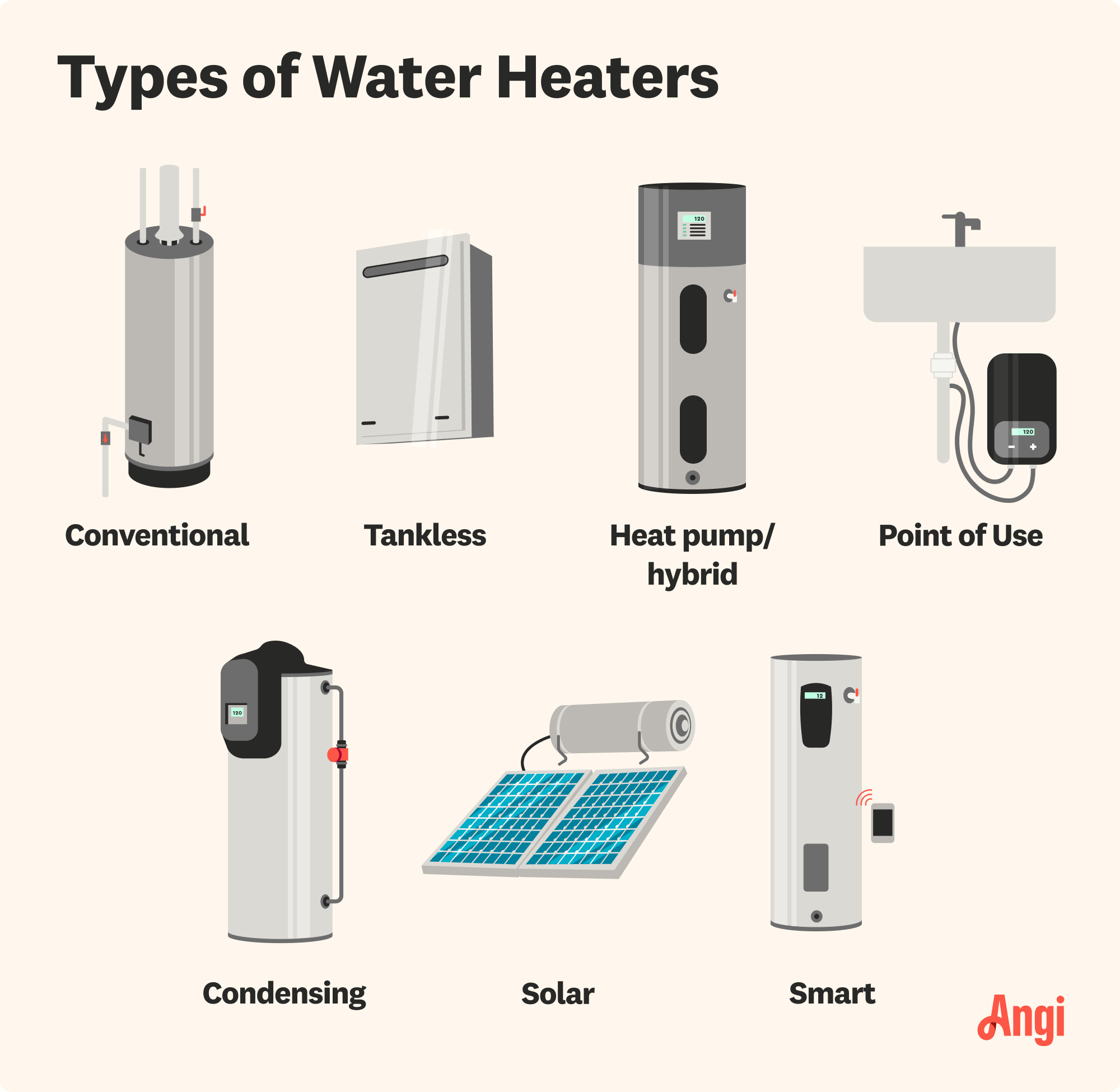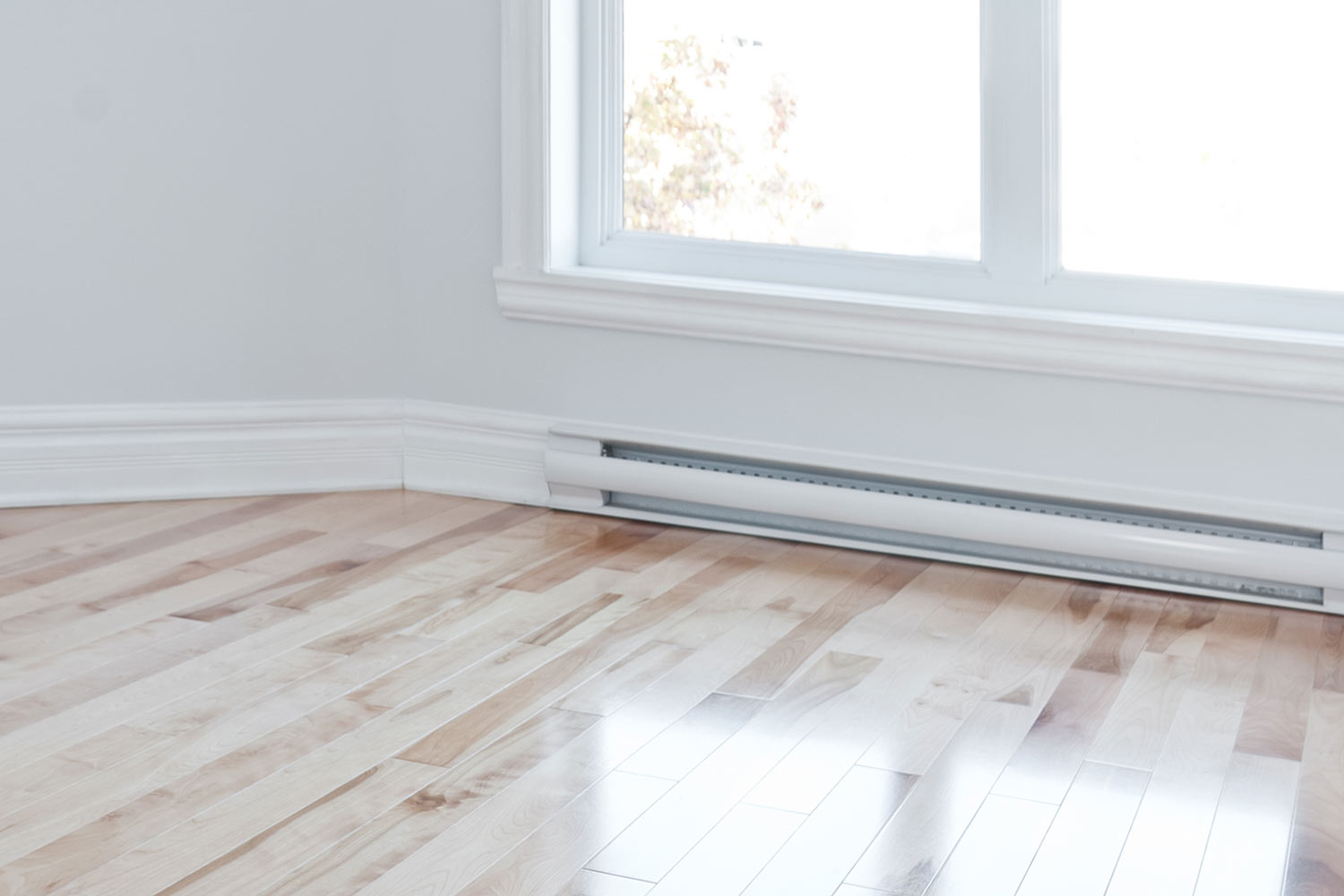
Running out of hot water too quickly or hearing strange noises when you call for hot water? Use this water heater repair cost guide to see what a fix will cost.
When your water heater is on the fritz, put down the wrench and pick up your phone instead


Water heaters are subject to numerous building code requirements.
Installation requires proper permitting and inspections.
Improper water heater installation can create a dangerous situation.
DIY installation or repairs can void the warranty.
Water and gas plumbing, electrical, and carpentry knowledge is necessary.
We all love the benefits of hot water: sparkling dishes, unsoiled bright whites, and a hot shower to soothe our tired muscles after a long day. But when our water heater goes kaput, it can be a major inconvenience and a nuisance. To save some cash, you might wonder if you can install a water heater yourself.
Put simply, installing a water heater is no weekend DIY project. In fact, it’s best to leave the task to a licensed plumber—or you could be facing major safety, financial, and legal risks. Here are the most crucial factors to consider so you can make an informed decision.
Some DIY repairs are great for saving money and sharpening your skills, but leave larger jobs like water heater repair to the pros. An experienced hand can ensure the task is completed safely and will prevent further damage.

There are practical reasons why you shouldn't install a water heater yourself. First, knowing the correct unit size you need is essential, especially when sizing a tankless water heater.
Second, learning the numerous building code regulations surrounding water heaters can be confusing, even for expert DIYers. Finally, improper installation can affect how long water heaters last. More important, though, are the safety concerns for your family, home, and your wallet.

Gas water heaters are powered by burning combustible fuel. Despite the pleasures of hot water, combustible fuel is highly flammable. If your water heater isn’t installed properly, it can cause a fire, explosion, or carbon monoxide poisoning.
Improper installation can lead to serious safety and health risks, such as:
Gas leaks
Carbon monoxide poisoning due to improper ventilation
Water damage due to improper connections between the water heater and the right supply lines, which affect its ability to drain water properly.
If your water heater isn’t installed by a licensed plumber, your home insurance company will likely refuse to pay for damage caused by your water heater. Paying out of pocket can cost thousands of dollars if a water heater explodes and floods your home—or worse, your neighbors’ house.
The water heater manufacturer will also leave you hanging if your DIY installation fails. In fact, you won’t even be able to register your product warranty without a plumber’s licensing details.
Most municipalities require permits for water heater installations. Doing this without a permit is risky because you could be fined if caught—especially when you go to sell your home in the future.
Water heaters and hot water storage tanks must comply with your local and state regulations, requiring:
Inspections to protect inhabitants and visitors from potential safety risks
Placing your water heater in a location that provides access to observation, maintenance, servicing, and replacement
Displaying pressure limits on the metal of the water heater
Providing the appropriate elevation of the system
Following proper seismic specifications in regions prone to earthquakes
Assuring the correct circulation for the water heater
Including anti-siphoning devices
Installing pressure relief valves and temperature relief valves where appropriate
Using temperature relief valves that don’t exceed 210 degrees Fahrenheit and pressure relief valves that don’t exceed 150 psi
If these state regulations seem complicated, it’s because they are. While different municipalities list different building codes and regulations, a licensed plumber in your state will be familiar with them. Failure to comply with these regulations will result in possible safety issues and fines.
The water heater's TPR valve and connected discharge tube are crucial safety components that must operate correctly at all times to avoid a potential catastrophe. During normal operation, the TPR valve stands ready to eliminate pressure in the water heater's tank. When it releases pressure, the discharge tube must be capable of safely discharging potentially scalding water.
Installation rules vary between municipalities and include, but aren't limited to, the discharge tube's length, diameter, material, and where the water is allowed to go.
Improper combustion venting can be dangerous. It not only makes the heater operate less efficiently but can also cause a buildup of carbon monoxide and other combustion gases in the home.
Although combustion gas venting may appear straightforward, several building code requirements address the vent pipe's slope, length, material, support, and connections.
Electric water heaters are high-voltage appliances, and mishandling them can lead to serious electrical hazards. Not only is there the potential for electric shock, but getting your wires crossed — incorrect wiring or improper installation — can lead to short circuits, overheating, or electrical fires. These risks make hiring a professional electrician not just a smart choice but a necessary one.
Installing gas piping and fitting connections is unlike installing water supply and drain lines. Being invisible, gas leaks are more difficult to detect and more dangerous. Installing a gas water heater includes having water plumbing, gas plumbing, and electrical skills and experience.
Regulations surrounding securing the gas and power supply vary by location and include details such as allowable fittings and materials, pipe and electrical support and protection, and ensuring the water heater itself is secure in its place.
Even the most fearless DIYers should not attempt to install a water heater. Installing a water heater requires plumbing, electrical, and carpentry skills. You’ll also need a permit, an inspection from your municipality, and an understanding of state and local building codes.
One of the most important decisions a professional makes is installing the right-sized water heater for your home. A tank that is too small will struggle to heat your home properly and wear out faster. While most homes require 50-gallon tanks, a 60-gallon tank may be needed in a home with heavy shower and laundry use.
So to keep your home and family safe and protect your investment, you should not install your own water heater; you’ll need a pro to finish this job.
Formal training teaches aspiring plumbers how to work on water and gas lines, including installing the proper fixtures and checking for pressure issues or gas leaks. One tiny DIY misstep could mean danger, including:
Over-tightening a gas control valve, which could cause a gas leak and lead to a fire
Improper supply line connections, which put undue stress on drainage systems and can allow cross-connections between unsafe sources, like a heating pipe
Leaks in electric lines or gas valves, which can trip breakers and trigger automatic shutoff
Plumbers also learn the electrical skills necessary to connect gas or electric water heaters to a breaker box. Faulty electrical work could lead to issues such as:
Loose wires in your water heater, which can trip the water heater reset button
A water heater that keeps flipping the circuit breaker
Blown fuses and tripped circuit breakers, which can lead to fires and fried appliances
Aside from plumbing and electrical technicalities, installing a water heater may require maneuvering drywall, grounding plumbing pipes, and leveling the base of your water heater. When the install gets tricky—it likely will—a knowledgeable pro can handle complicated scenarios like:
Installing your water heater in a location that is not prohibited and does not violate codes
Installing your system in locations that are difficult to access
Building a larger installation space for larger, newer water heaters
Understanding when to install water heaters in attics, which may require construction, while meeting size regulations and building codes
Supplying proper insulation around the tank
A 40- to 50-gallon tank-style water heater costs an average of $600 to $2,500, including installation, while tankless water heaters run $1,200 to $3,500. Hiring a local water heater installer will cost more than doing the work yourself, but a pro will help eliminate risk and save you from severe headaches. Expect a water heater pro to charge between $45 and $200 per hour in labor fees.
My water heater went out sunday night. Jeff called me monday morning at 7am. His price was hundreds better than the 2 companies I called the previous night. He definitely has the best prices around. Once I gave him the okay his team was out here by monday afternoon at 1pm. They removed the...
Very professional and a Genuine guy all the way around! I was very pleased with how quick snd efficient he installed our upstairs hardwood floor! I would recommend hiring him, if you want to support a small company that is in need of work!
Had an attitude to begin, installed a gas valve (which I provided), drained the water heater but didn't divert the water out the side door with a hose(which I provided), forgot to turn water back on to tank, and didn't wave the service call like he said. Paid $355 for this and now I have to...
They were very helpful in taking care of this project. Grading and sloping
Our heater died 3 days before Christmas, they were there and installed and finished on Christmas Eve!!! Other company said two weeks before they could even see us!! Very polite, showed up when they said and went the extra extra mile for us.
We were very pleased with the work they did replacing our water heater. We also took advantage of the free inspection and will definitely be using them in the future for all our plumbing needs. We highly recommend them.
They told me there was no water damage in my crawl space area while 3 other companies said there was this is a Great Company.My problem is finding a company to sanitized my crawl space area can you help me with that?
While moving to a new house, In and Out Floors was the savior. They are responded very quickly and been so understanding and professional, the price are very competitive with best quality!! I donâ t usually put reviews, but In and Out desire 10 starts, you really should consider them if you...
We had a great experience with Steve from Great Oaks Plumbing. He was very nice and did a great job with installing our new hot water tank.
Installed a water heater. Awesome job!
From average costs to expert advice, get all the answers you need to get your job done.

Running out of hot water too quickly or hearing strange noises when you call for hot water? Use this water heater repair cost guide to see what a fix will cost.

Find out the average tankless water heater repair cost, what impacts pricing, and how to save. Get expert tips to plan your repair budget with confidence.

Wondering how much a water heater expansion tank costs? Use this cost guide to get an accurate estimate and learn how to choose the right one for your home.

Hot water expansion tanks help protect your home by preventing an overflow of your water tank. Learn why you may need one, how much they cost, and their benefits.

Not sure who to hire for baseboard or wall heater installation? Learn when to call an electrician, HVAC tech, or plumber, and see how pros install them.

Common causes for a water heater that keeps tripping a breaker include a damaged heating element or thermostat. Keep reading to find out other common reasons.